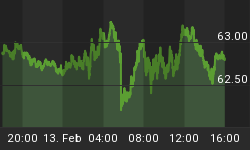Last week, the SEC rejected nine Bitcoin ETF applications, closing another chapter in the financial product’s long, drawn-out narrative in the crypto community.
Since 2017, when the Winklevoss twins began submitting applications to the SEC, the agency has continually rejected efforts to certify a regulated Bitcoin ETF. Citing concerns about crypto price manipulation and inadequate fraud protection, the agency issued rejection after rejection, much to the dismay of the product’s supporters.
Buoyed by the intense demand and expectation for the product, the applications seem to come in waves as companies tailor and restructure their proposals based on the SEC’s previous rulings. For instance, the most recent set of applications were set to correlate with the value of Bitcoin futures, a derivative Bitcoin market that the SEC approved last year, by using contracts from exchanges Cboe and CME. By relying on data from these reputable and approved exchanges, applicants were hopeful that their proposals would gain traction.
They were wrong. Regardless of the changes, the results are always the same, and to date, there are no federally regulated Bitcoin ETFs available.
However, that fact has not muted the expectations or excitement surrounding the product. Related: Social Media Giants Crack Down On Global Info War
In fact, the expectation that a Bitcoin ETF proposal will be accepted routinely impacts Bitcoin's price. It tends to rise in conjunction with expectations and then to collapse in an exhale of dejection.
What will a Bitcoin ETF accomplish?
In traditional financial markets, an ETF combines several different assets into a single investment account that is easily bought and sold. In a diverse economic landscape where many products are available, and diversification is as much a strategy as it is a necessity, this approach makes sense.
In contrast, a Bitcoin ETF would be comprised of just that single asset, Bitcoin.
Therefore, it can seem odd that the product is so lauded. While Bitcoin futures provide a fundamentally different financial product than Bitcoin, a Bitcoin ETF would be substantively the same, making its functionality appear dubious.
Of course, the most prominent reason for supporting a Bitcoin ETF is the potential to produce institutional investment in crypto markets. Unlike Bitcoin, a Bitcoin ETF could be made available in more traditional investment arenas - for example, the most recent set of applications were set to trade on the New York Stock Exchange - as well as insulating institutional investors from other crypto eccentricities like exchanges, storage, and security.
In many ways, Bitcoin’s unparalleled price boom is the result of enthusiastic support from a cacophony of individuals, but, with few exceptions, mainstream institutional investment has been stubbornly resistant to the movement.
In the midst of a sustained crypto downturn, many are counting on Bitcoin ETFs to open markets and boost the price. As Krill Bensonoff, a crypto entrepreneur and host of Boston Crypto Meet-Up, observes,
“At this point in the prolonged bear market, people are desperate and feeling the pain. The upcoming Cboe ETF proposal, if approved, will open up Bitcoin to many more institutional and retail investors, and it should push the value of BTC up.”
In short, the successful implementation of a Bitcoin ETF could raise the price of Bitcoin for everyone, restoring the optimism and unbridled possibility that characterized much of 2017.
In many ways, Bitcoin ETFs are the golden goose that the industry is chasing.
The repercussions of progress
The notion that a Bitcoin ETF will usher in an era of institutional investment in crypto markets is still a hypothetical, though certainly plausible, prospect.
It reflects a growing sentiment that Bitcoin is best viewed as a speculative asset rather than a usable currency. In a recent report evaluating the efficacy of Bitcoin and Bitcoin Cash, The Wall Street Journal notes, “Many bitcoin holders view it as a hedge against the collapse of government-backed currencies, but don’t often use it to pay for things.”
Related: International Payments Are Becoming A Geopolitical Battleground
As Mr. Bensonoff explains, this mindset has implications too:
“an ETF is counter-intuitive to Bitcoin's original mission and Satoshi's vision of a decentralized payment mechanism. Wall St and regulators will gain a strong foothold and control, so an ETF is a double-edged sword which may backfire.”
Interestingly, faced with the recent rejections, the crypto community has responded by airing support for the digital currency on its own merits. In the wake of the denial, the price of Bitcoin not only held, but it increased slightly in the days after the announcement.
Moreover, the SEC, following its own rules on petition rules, will review the agency’s decision to reject last week’s applications.
In other words, this chapter may not be over just yet, and it remains unclear how this much-anticipated financial product will impact the broader story of Bitcoin adoption. It may cement the digital currency’s fate as an equivalent to digital gold, or it may reflect the enduring challenge to make Bitcoin function according to its original purpose, a digital, decentralized version of currency.
By Bill DeLisle via Crypto Insider
More Top Reads From Safehaven.com

















